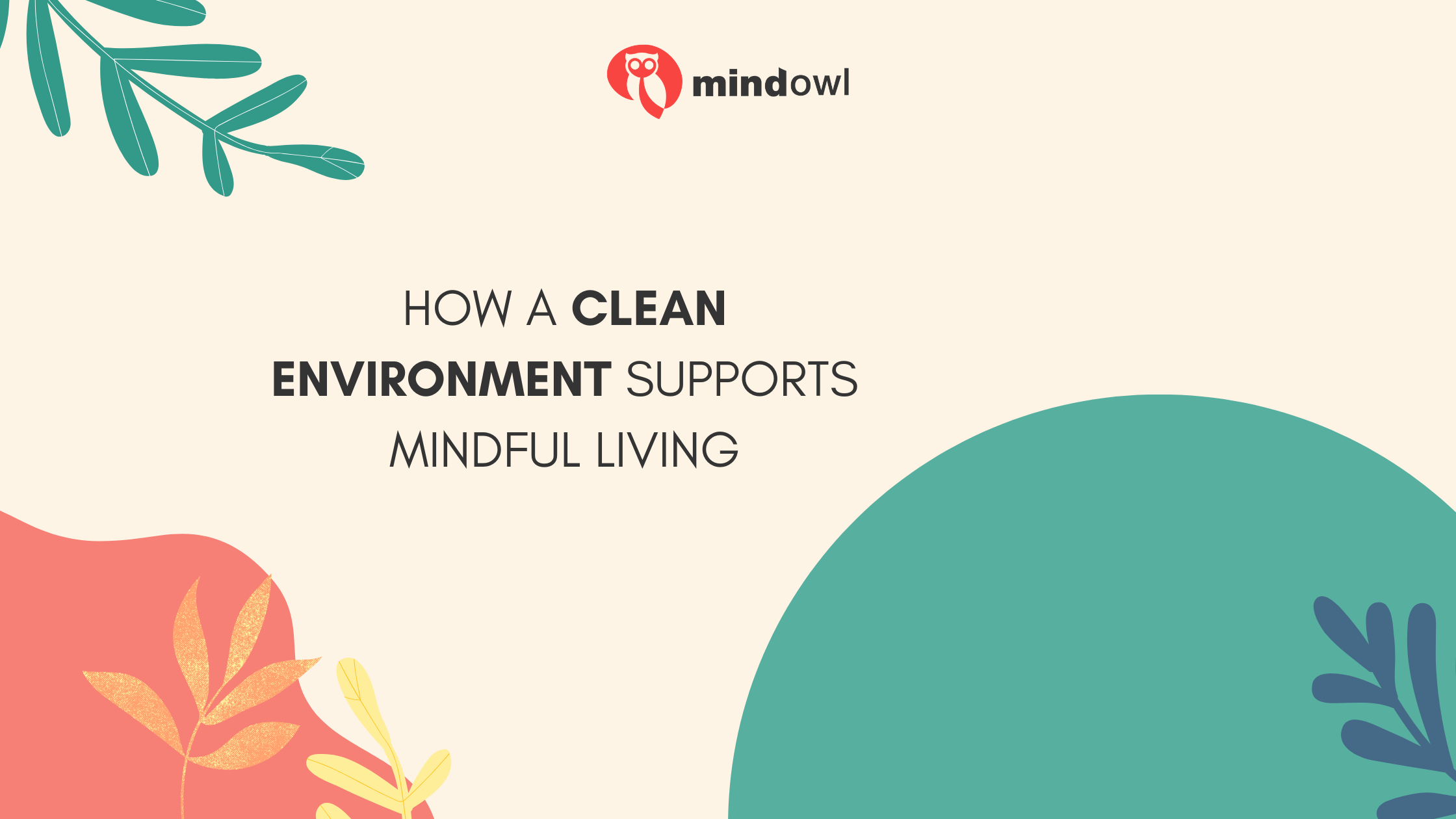
Imagine walking into a room that’s neatly arranged, where everything has its place, and the air feels fresh. You might notice how this clarity impacts your thoughts, allowing you to focus more deeply on what truly matters. A clean environment can be more than just visually appealing; it can actively support your journey toward mindful living. Resources like the https://fourspc.com/ website offer guidance on how to align your physical space with mental clarity, making it easier to cultivate intentional habits. But how exactly does this connection influence your daily habits and mental well-being? Exploring this can reveal powerful insights that might change the way you approach both your space and your mind.
The Link Between Cleanliness and Mindfulness
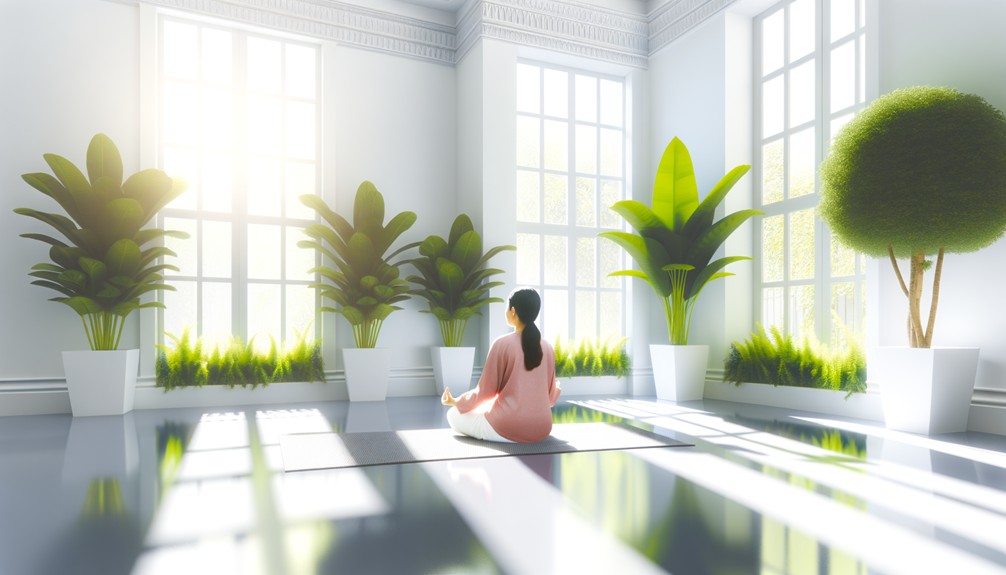
Cleanliness and mindfulness go hand in hand, creating a harmonious environment that fosters well-being. When you maintain a clean space, you’re not just tidying up; you’re actively promoting mental clarity. Clutter can cause stress, distracting you from the present moment. By keeping your surroundings organized, you invite tranquility and focus into your life.
Imagine walking into a clean room—the fresh air, the absence of chaos—it sets a tone for mindfulness. Each time you clean, you’re engaging in a meditative practice, allowing your thoughts to settle while you focus on the task at hand. You might find that as you wipe surfaces or arrange items, you become more aware of your breath and your body, enhancing your overall mindfulness experience.
Moreover, a clean environment often encourages healthy habits. When everything’s in its place, you’re more likely to take care of yourself—preparing nutritious meals, exercising, or simply enjoying quiet moments.
This connection between cleanliness and mindfulness isn’t just about aesthetics; it’s about creating a sanctuary for your mind. So, embrace cleanliness as an essential component of your mindful living journey, and watch how it transforms your life.
Reducing Distractions in Your Space
As you endeavor to cultivate a mindful living environment, reducing distractions in your space becomes essential. A cluttered area often leads to a cluttered mind, making it challenging to focus on the present moment. Start by decluttering your surroundings. Remove items that no longer serve a purpose or bring you joy. This creates a serene atmosphere where you can concentrate better.
Next, consider your digital distractions. Turn off unnecessary notifications on your devices and designate specific times to check emails or social media. This way, you can maintain your focus and avoid the constant pull of technology.
Organize your space thoughtfully. Arrange your furniture to promote calmness, and use soft lighting to create a peaceful ambiance. Incorporate elements that inspire mindfulness, like plants or art that resonates with you.
Lastly, create designated zones for different activities—work, relaxation, and mindfulness practices. This helps your mind associate each area with a specific purpose, reducing the likelihood of distractions.
The Psychology of a Tidy Environment
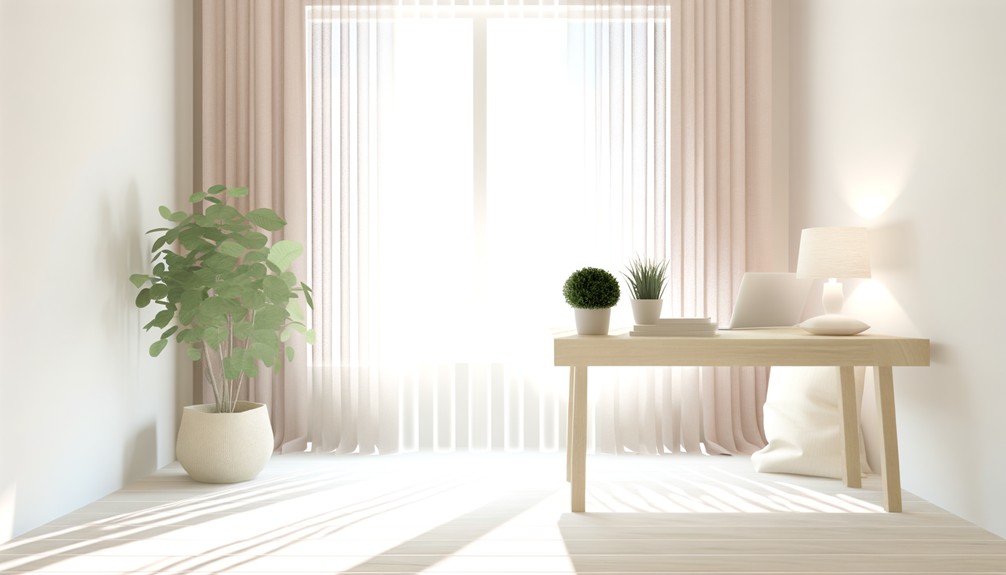
A tidy environment can greatly influence your mental state, fostering clarity and reducing stress. When you walk into a clean, organized space, you immediately feel a sense of calm. This isn’t just a coincidence; research shows that clutter can overwhelm your mind, leading to anxiety and distraction. You might find it challenging to focus on tasks when surrounded by a mess, while a tidy space invites productivity and creativity.
Moreover, a clean environment can boost your mood. When your space reflects order and harmony, it positively impacts how you perceive your day-to-day life. You’re more likely to feel motivated and energized, which can lead to improved mental well-being.
Creating a tidy environment is also an act of self-care. By taking the time to organize your space, you’re signaling to yourself that you value your mental health. It’s a way to reclaim control over your surroundings, enabling you to cultivate a mindset that fosters mindfulness.
In essence, investing in a tidy environment isn’t just about aesthetics; it’s about nurturing your mental state and enhancing your overall quality of life.
Decluttering for Mental Clarity
Clutter doesn’t just occupy physical space; it can cloud your mind and hinder your ability to think clearly. When your surroundings are disorganized, your mental state often mirrors that chaos. It’s easy to feel overwhelmed, anxious, or distracted in a cluttered environment, making it hard to focus on what truly matters.
By decluttering, you create a space that fosters mental clarity. Start by evaluating your belongings—keep only what you love or need. This process not only cleans your environment but also helps you clarify your priorities. When you trim down distractions, you’ll find that your thoughts become more streamlined and organized.
Take it a step further by establishing a regular decluttering routine. Even small, consistent efforts can lead to a more peaceful space and a clearer mind. Consider dedicating just 10 minutes a day to sorting through items; you’ll be amazed at the difference it makes.
Ultimately, decluttering is more than just tidying up; it’s about making room for positive energy and focused thinking. Embrace this practice, and you’ll likely notice a shift in your mental clarity, making it easier to navigate life’s challenges with intention and purpose.
Creating a Calming Atmosphere
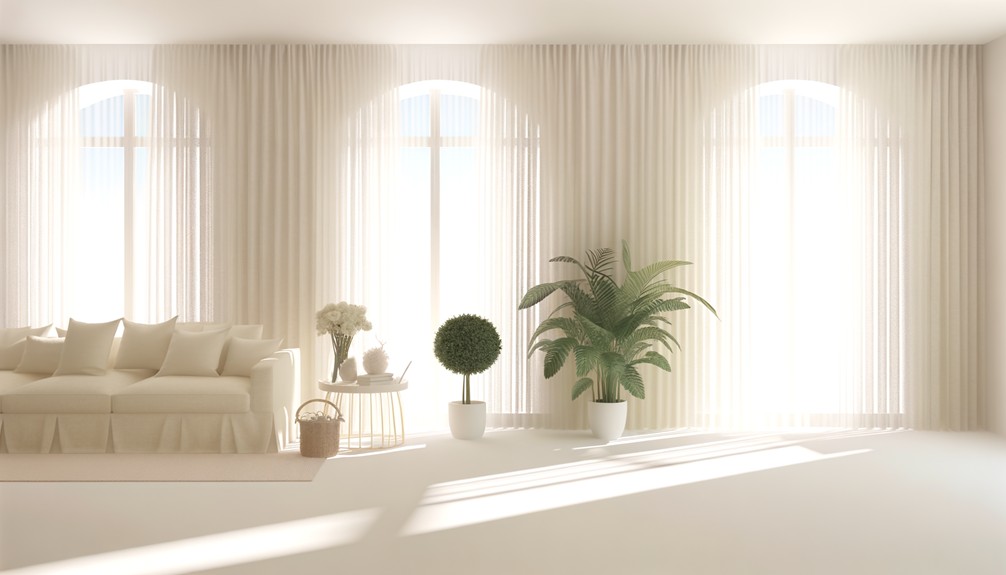
Creating a calming atmosphere in your home can greatly enhance your overall well-being. To start, consider the colors you surround yourself with. Soft, muted tones like blues and greens can promote tranquility, while bright colors may overstimulate your senses.
Next, focus on lighting. Natural light is ideal, so open those curtains! If that’s not possible, opt for warm, dimmable lights to create a cozy ambiance.
Another essential aspect is scent. Incorporate calming fragrances like lavender or chamomile through essential oils, candles, or incense. These scents can reduce stress and encourage relaxation.
Additionally, bring nature indoors. Houseplants not only purify the air but also foster a sense of peace.
Don’t forget about sound. Soft background music or nature sounds can drown out distractions and create a serene environment.
Finally, make sure your space is clean and clutter-free. A tidy area can greatly influence your mood and help you feel more at ease.
The Role of Organization in Focus
An organized space substantially boosts your ability to focus and be productive. When your environment is clutter-free, your mind can concentrate on the task at hand rather than being distracted by disarray.
You’ll find that an orderly workspace not only enhances your focus but also sparks creativity and motivation.
Consider the items you surround yourself with. Each object in your space should serve a purpose. By keeping only what you need and love, you’ll create an environment that fosters clarity.
This intentional organization helps eliminate decision fatigue, allowing you to immerse yourself in your work without hesitation.
Furthermore, the organization promotes a sense of calm. When everything has its place, you can easily locate what you need, reducing stress and increasing your efficiency.
You’re more likely to enter a state of flow when your surroundings are harmonious and structured.
Incorporate small organizational habits into your daily routine, like decluttering at the end of each day.
Over time, you’ll notice how these adjustments enhance your focus, leading to a more productive and mindful life.
Embrace organization today, and watch your ability to concentrate soar!
Enhancing Your Senses Through Cleanliness
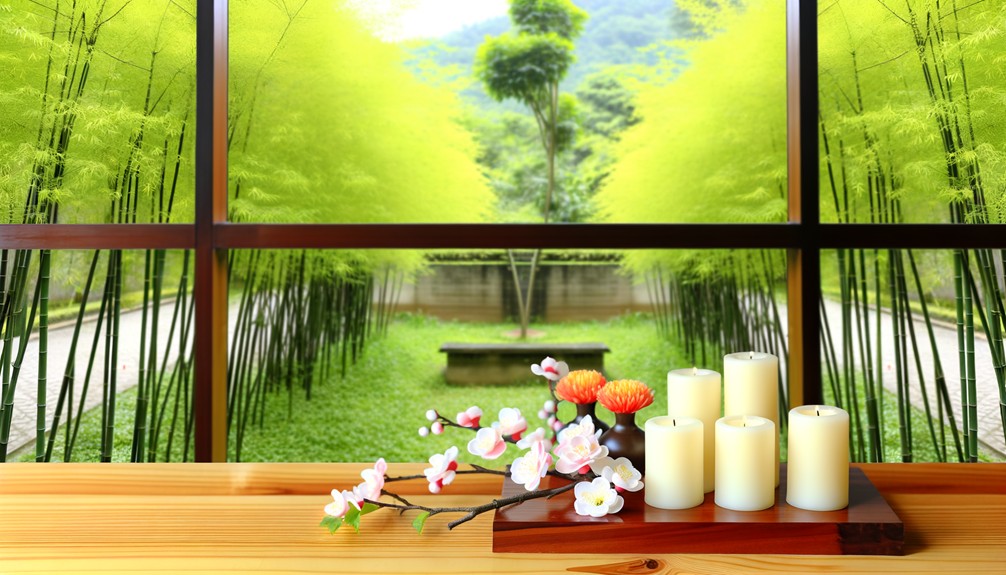
Transforming your environment through cleanliness can greatly heighten your sensory experiences. When your space is clean, you’ll notice how much more vibrant colors appear, how fresh scents invigorate your mind, and how sounds become clearer.
A clutter-free zone allows you to focus on the little details that often go unnoticed, enhancing your appreciation for the beauty around you. By removing dust and grime, you’re not just improving your surroundings; you’re also creating a sanctuary for your senses.
Imagine the crispness of a well-aired room or the soothing touch of soft, clean fabrics. Each sensory experience becomes more pronounced, allowing you to live more fully in the moment.
Moreover, a clean environment can reduce distractions, enabling you to engage more deeply with your thoughts and feelings. When you’re not preoccupied with mess, it’s easier to savor the taste of your meals or the warmth of sunlight streaming through your windows.
Rituals for Maintaining a Clean Space
Maintaining a clean space doesn’t just happen; it requires intentional rituals that fit seamlessly into your daily routine. Start each day by making your bed. This simple act not only tidies your room but also sets a productive tone for the day.
Incorporate a quick five-minute tidy-up session each evening, where you declutter surfaces and put items back in their designated places.
Another effective ritual is the “one in, one out” rule. Whenever you bring something new into your space, let go of something old. This helps prevent clutter from accumulating and encourages mindful consumption.
Consider dedicating a specific day each week to deep cleaning. Whether it’s dusting, vacuuming, or organizing, having a set schedule makes it manageable.
Mindful Cleaning Techniques

How can you turn cleaning into a mindful practice that nurtures both your space and your well-being? Start by shifting your mindset. Instead of seeing cleaning as a chore, view it as an opportunity to connect with your environment.
Focus on one task at a time—whether it’s dusting a shelf or scrubbing the floor. This helps you stay present and fully engaged.
Use natural cleaning products to enhance the experience. The scents of lemon or lavender can uplift your mood and promote calmness.
As you clean, pay attention to the textures and sensations around you. Feel the warmth of the cloth in your hand or the coolness of a spray bottle. This sensory involvement grounds you in the moment.
Incorporate deep breathing as you work. Inhale through your nose and exhale through your mouth, letting go of any stress.
This simple practice can transform your cleaning routine into a meditative experience.
Nature’s Impact on a Clean Mind
Cleaning your space mindfully not only nurtures your surroundings but also paves the way for a clearer mind. When you engage with nature, whether by opening a window to let in fresh air or incorporating plants into your environment, you invite tranquility into your life. Nature has an incredible ability to reduce stress and enhance your focus. Studies show that spending time in green spaces can lower cortisol levels, making you feel more relaxed and centered.
Imagine taking a break from your daily routine to step outside. The sights and sounds of nature can rejuvenate your spirit, providing a mental reset. By allowing natural light to fill your home, you can uplift your mood and create a more inviting atmosphere.
Incorporating natural elements into your cleaning routine, like using eco-friendly products, not only benefits the environment but also promotes a sense of well-being. When your space feels clean and connected to nature, you’ll find it easier to think clearly and make mindful decisions.
Long-term Benefits of a Clean Environment

A clean environment can lead to significant long-term benefits that enhance your overall well-being. When you maintain a tidy, pollution-free space, you’re not just improving aesthetics; you’re positively impacting your mental and physical health. Studies show that a clean environment reduces stress and anxiety, allowing you to focus on what truly matters in your life.
Moreover, a clean space encourages healthier habits. With less clutter, you’re more likely to engage in activities like cooking nutritious meals or exercising, both of which contribute to your long-term health. You’ll also notice a boost in productivity, as a clean environment fosters clearer thinking and better decision-making.
Additionally, living in a clean environment supports sustainable practices. By making eco-friendly choices, you help preserve natural resources for future generations, creating a lasting legacy of mindfulness and care. This not only benefits you but also your community and the planet.
In essence, investing in a clean environment today paves the way for a happier, healthier tomorrow. So, take those small steps towards cleanliness now, and watch how they transform your life in the long run.
Conclusion
To sum up, embracing a clean environment doesn’t just tidy up your space; it transforms your mind. Research shows that a clutter-free area can greatly reduce stress and boost focus. By incorporating mindful cleaning rituals and creating a calming atmosphere, you cultivate a sanctuary that nurtures your mental well-being. So, why not take a moment to declutter? The benefits of a serene environment extend far beyond aesthetics—they promote a life of clarity, peace, and mindful living.
MindOwl Founder – My own struggles in life have led me to this path of understanding the human condition. I graduated with a bachelor’s degree in philosophy before completing a master’s degree in psychology at Regent’s University London. I then completed a postgraduate diploma in philosophical counselling before being trained in ACT (Acceptance and commitment therapy).
I’ve spent the last eight years studying the encounter of meditative practices with modern psychology.

